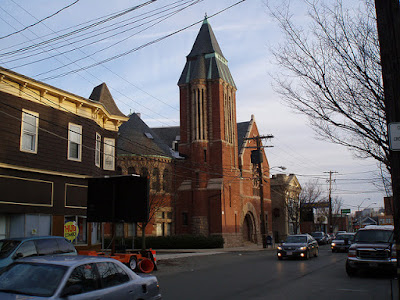Winter Dreams
by Philip E. Burnham, Jr.
ISBN: 978-1-329-61896-1
Ibbetson Street Press
25 School St.
Somerville, Mass. 02143
The more I read these poems by Philip Burnham, the more I enjoy rereading them. One reason I kept returning to their lyrical descriptions is the pleasure that comes with an appreciation of their craft; a pleasure that began with “That Snowy Field,” the first poem in the collection:
So undisturbed and seeming singular
As if it fell a sheet of paper here
New snow is cover to a neighbor field
* * *
When children may print angels to the sky
And I, in love, will write your name with mine
On this imagined sheet of paper here
So undisturbed and seeming singular.
This is not the only poem in Winter Dreams, which brought to mind Eliot’s line, “In my end is my beginning.” “On Crissy Field” and “Rainbow Rain,” also have endings that concretely echo their beginnings. These couplets are from the latter poem, "Blue rain, green rain, yellow rain, red,/Mist, showers, torrents, thunder heads. … And stored within our watershed/Blue rain, green rain, yellow rain, red." Other poems, such as his audaciously titled, “Bare Ruined Choirs’” are more oblique in their implication that to live may be to go around in circles and that, possibly, the best we might hope to accomplish would be to craft beautiful circles.
I hesitate to praise these poems for their accessibility and traditional formalities for fear they will be dismissed, as out of fashion, but in Frost’s tennis match Philip deserves a low seed. Because of his dedication to the formalities of meter, line length and rhyme, they have a surface clarity. Reading them I never found myself disoriented and going “Huh! Where am I?” or asking, “What is going on here?” His themes are universal: birth, life, death, spring, summer, autumn, winter, loneliness, love, loss, grief and exultation. You will find little to puzzle over in these poems but much to ponder.
Here in “Walking October,” he muses upon his mortality
Crisp apples drop hard off the orchards trees
Thudding to ground a hazardous drum-roll
Of solemn, ceremonial gravity
Marking the dispatch of an other Fall.
* * *
There is no telling if we may repeat
Another year the possibility
Of walking through October's vast retreat
When endings seem in the majority.
And again on this same theme in “August Shadows”:
We have been here so many times before,
Brief lives with seasons, unprepared to part,
We stand half in the house, half out the door,
Our mind to come inside, but not our heart.
Philip is a widower and four of the poems are addressed to his deceased wife as "Birthday Greeting[s] IX, X, XI, and XII …” Of these number XII “California Family/Louise at Seventy-five, February 27, 2014," is the only one of the 74 poems in the collection in free verse; it ends:
Where you might now be walking
On the beach or in a meadow
Had only death not said,'
“Come, drink my wine."
Her death has been only alluded to in the first three of these poems each of which has a regularity of meter and rhyme, but here, when “death” is at last admitted, the formalities are discarded. It is as if death is the one event that can disrupt the personal order of one’s life. But the disruption is temporary; the order may be recovered, as it is in the poems surrounding this one; it may be recovered through the comfort of the poetry. Yes, this collection says, our lives need rhyme contained in a metric of reason.
Many of his best poems are ones of melancholy and parting, of taking leave of people, things and life but they are, never the less, exhilarating because melancholy is not depression and, while it may trigger grief, separation, whether caused by time or distance or death, provides rich opportunities for appreciation. "Quartet," which begins, "The shingled roof's a dance and slight of rain,/A breaker sea's tattoo and slip from shore," and ends, "Its score of nature's and unnature's notes/Played in my youth and now in my retreat." is a good example of the many poems in this collection that thrive upon this tension.
However, Winter Dreams also has much cheer and Philip has a mastery of light verse, which he displays in several poems; perhaps best in this channeling of A. A. Milne, “Getting What One Asked For”:
When I was merely four - or, three,
Curious adults asked of me,
"Philip, what would you like to be
When you grow up?" Precociously,
I would reply that if I might,
I'd like to be a famous knight,
With shiny armor for my coat,
A castle circled by a moat.
Time and again I was moved by the ritual formality of Winter Dreams. I am not sure these cyclical themes could have been expressed as well in freer verse. With their recurrent themes composed in couplets, quatrains, sonnets, villanelles and other forms of his invention I think this poet is saying, “While I am not telling you anything you have not heard before, but these truths need repetition. They are couched in rhyme and metric regularity to aid the memory, so they may more easily become known by heart, as they must be, if we are to share in the survival of our humanity.”






































